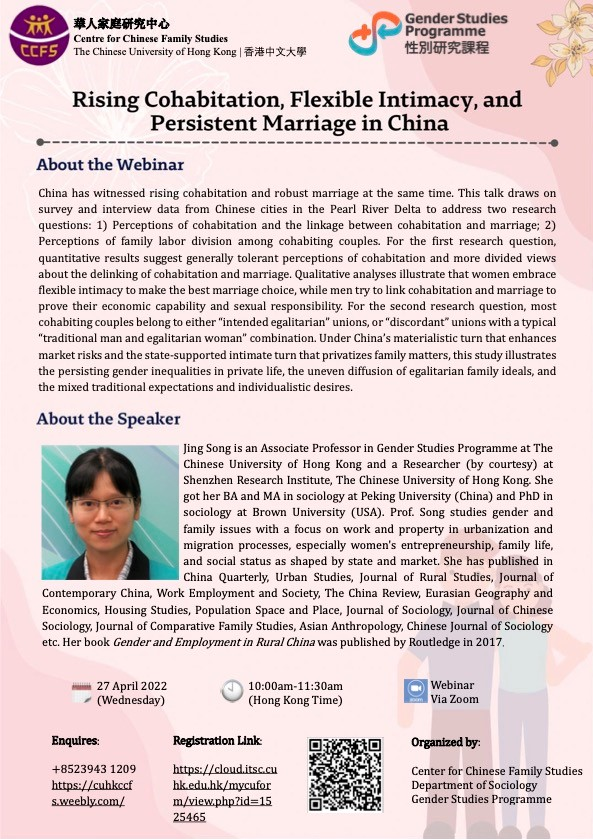
|
| Upcoming Event |
|
Speaker
Prof. Jing Song |
Associate Professor, Gender Studies Programme, CUHK
|
|
Co-organizer
Gender Studies Programme, CUHK |
|
 China has witnessed rising cohabitation and robust marriage at the same time.
This talk draws on survey and interview data from Chinese cities in the Pearl River Delta to address two research questions:
China has witnessed rising cohabitation and robust marriage at the same time.
This talk draws on survey and interview data from Chinese cities in the Pearl River Delta to address two research questions: 1) perceptions of cohabitation and the linkage between cohabitation and marriage; 2) perceptions of family labor division among cohabiting couples. For the first research question, quantitative results suggest generally tolerant perceptions of cohabitation and more divided views about the delinking of cohabitation and marriage. Qualitative analyses illustrate that women embrace flexible intimacy to make the best marriage choice, while men try to link cohabitation and marriage to prove their economic capability and sexual responsibility. For the second research question, most cohabiting couples belong to either “intended egalitarian” unions, or “discordant” unions with a typical “traditional man and egalitarian woman” combination. Under China’s materialistic turn that enhances market risks and the state-supported intimate turn that privatizes family matters, this study illustrates the persisting gender inequalities in private life, the uneven diffusion of egalitarian family ideals, and the mixed traditional expectations and individualistic desires. Registration: https://cloud.itsc.cuhk.edu.hk/mycuform/view.php?id=1525465 |
|
